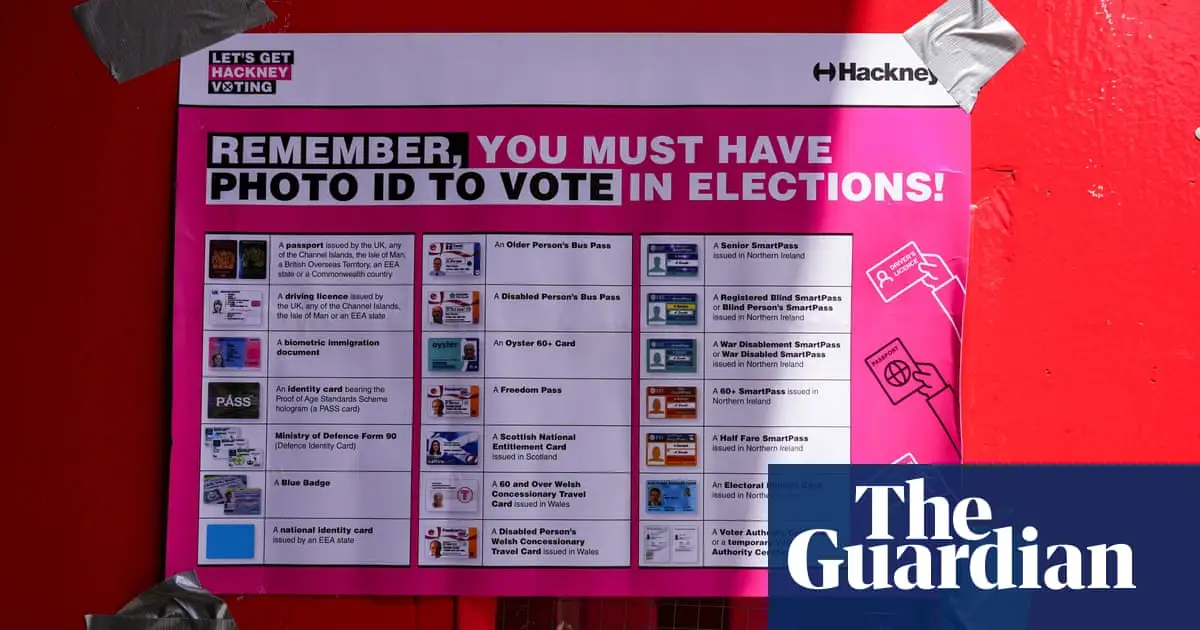- cross-posted to:
- neoliberal
- cross-posted to:
- neoliberal
More than 400,000 people may have been prevented from voting in the general election because they lacked the necessary ID, with those from minority ethnic communities more than twice as likely to have experienced this, polling has suggested.
Of those surveyed by More In Common, 3.2% said they were turned away at least once last Thursday, which if reflected across the UK would equate to more than 850,000 people. Of these, more than half said they either did not return or came back and were still unable to vote.
Among people turned away at least once, about a third had ID that was not on the relatively narrow list of permitted documents; about a quarter said the name on their ID was different to that on the electoral register; and 12% said they were told the picture on the ID did not match their appearance.
The poll of more than 2,000 people across Great Britain, coordinated by the campaign group Hope Not Hate, also indicated that the voter ID rules, used last week for the first time at a general election, disproportionately affected minority ethnic people.
It found that 6.5% of voters of colour were turned away from a polling booth at least once, compared with 2.5% of white voters.
The rule that voters must show photo ID was introduced by the Conservative government as part of its 2022 Elections Act, despite minimal evidence that in-person voter fraud was a significant problem.
…
Another potential issue is people deciding not to vote, or even register to vote, because they know they lack ID. The polling found that 6% of people said the ID requirements had affected their decision on whether or not to vote and that they then did not vote, which if reflected nationally could mean up to 2.8 million people not voting when they might otherwise have done.



This is the best summary I could come up with:
More than 400,000 people may have been prevented from voting in the general election because they lacked the necessary ID, with those from minority ethnic communities more than twice as likely to have experienced this, polling has suggested.
Before it was brought in, charities and campaigners said it was more likely to affect people from poorer or minority ethnic communities or those with disabilities, who were less likely to have the necessary ID.
People lacking the correct ID can apply for a free document called a voter authority certificate.
David Weaver, the chair of Operation Black Vote, said it was no surprise that minority ethnic people were disproportionately affected.
“These systematic barriers underscore a democracy that too often works against us rather than for us, highlighting the urgent need for large-scale constitutional reform,” he said.
Before the rule was brought in, Labour opposed the idea, arguing that it was not needed given the apparently tiny problem of voter impersonation.
The original article contains 569 words, the summary contains 159 words. Saved 72%. I’m a bot and I’m open source!